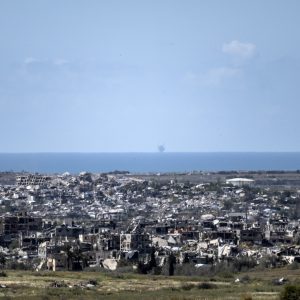Amidst crises, Lebanese squabble over clock change
Beirut, Lebanon (AFP):
Wrecked by a crippling economic meltdown and political deadlock, Lebanon is mulling over an odd question: “What time is it?”
A last-minute decision to delay daylight savings by a month has left the country divided between two time zones after the move was met with opposition from the influential Maronite Church.
Lebanon’s caretaker government had earlier announced its decision to delay rolling clocks forward until April 20, instead of the last week of March as is usually the case in the country and many others in the northern hemisphere.
Institutions including the church, as well as some schools and media outlets instead insisted on turning their clocks forward at midnight (2200 GMT on Saturday).
While the government has not explained the move, a video shared widely on social media may provide an explanation.
It shows a discussion between caretaker prime minister Najib Mikati and parliament speaker Nabih Berri, who asks the premier to delay the clock change until the end of Ramadan, in an apparent attempt to cater to Muslims who fast daily until sunset during the holy month.
Education Minister Abbas Halabi said that the eleventh-hour decision had “inflamed sectarian discourse”, arguing a cabinet decision was required to make the change.
In a statement on Twitter, he said schools and universities should observe daylight savings time as initially planned — but some institutions had already said they would abide by the roll-back.
‘Purely administrative’
Pierre Daher, CEO of Lebanese broadcaster LBCI, said, “The worst thing is that the decision on when to begin summer time took a sectarian turn.”
The channel had said in a statement it would defy the government’s decision as the delay would affect its operations.
“Had the government taken the decision a month ago, and not 48 hours in advance, then there wouldn’t have been a problem,” Daher said.
Three other Lebanese networks also moved clocks forward.
Mikati in an earlier statement had called the move “purely administrative”.
However, the powerful Maronite Church said the decision had been taken “without consultations and without any regard for international standards”.
The church had refused to comply in order to prevent “further isolating Lebanon”, he said.
Two prominent Christian political parties have called on the government to reverse its decision.










